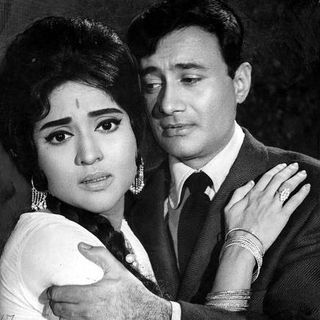This weekend, the Wall Street Journal published an opinion editorial questioning the credentials of U.S. First Lady to-be Dr. Jill Biden, who is a Doctor of Education (Ed D). The writer of the WSJ piece, a former adjunct professor at Northwestern University, Joseph Epstein, cast aspersions on Biden’s “Dr.” title, urging her to drop it, calling it “fraudulent” and “a touch comic,” and going on to belittle Dr. Biden as “kiddo.”
He adds that degrees that confer the “Dr.” title have “been diminished by the erosion of seriousness and the relaxation of standards in university education generally,” a phenomenon worsened by political correctness. Epstein’s op-ed has since then been severely criticized by academics as sexist, prompting a response from Dr. Biden herself, who tweeted, “Together, we will build a world where the accomplishments of our daughters will be celebrated, rather than diminished.”
The article reflects a larger problem faced by women academics who face severe discrimination and belittlement in their fields, often from male academics whose entitlement and gatekeeping keeps women from flourishing as renowned and respected experts and scholars. While the “Dr.” title may seem superficial, women academics in the past have pointed out that it’s often the only (and quickest) way to prove to someone that they have advanced qualifications in their field of expertise. This is especially important considering the title “Dr.” has almost exclusively male connotations and associations, and women scholars with doctorates are often referred to as “Ms.” or “Mrs.”
This was seen in a 2018 controversy, in which a historian, Dr. Fern Riddell, started a campaign called #ImmodestWomen, by tweeting, “My title is Dr. Fern Riddell, not Ms. or Miss. Riddell. I have it because I am an expert, and my life and career consist of being that expert in as many different ways as possible. I worked hard to earned my authority, and I will not give it up to anyone.” She was called “arrogant” and “immodest” by critics, which then led hundreds of women academics to share their own experiences of bias. These described instances in which women with doctorates were referred to as “Ms.” or by their first name (in journals, publications, on social media) while their husbands with similar qualifications were referred to as Dr. The campaign also revealed that female academics preferred “Dr.” to “Ms.” or “Mrs.” because it was more gender-neutral and not dependent upon their marital status.
The 2018 campaign then extended to medical doctors, too, in which women M.D.s described instances in which they were questioned on their “Dr.” title, whether on social media, in person, or in official documents. A 2018 study bears this out: researchers looked at more than 300 instances of grand rounds (formal meetings in hospitals where clinical cases are discussed) and how women doctors were referred to during the rounds. They found men used formal titles when referring to other men 72% of the time, with the figure falling to 49.2% when they referred to women. Women, on the other hand, used formal titles 96.2% of the time when referring to their colleagues, regardless of gender.
Related on The Swaddle:
A Series of Charts Show Mothers Take an Income Hit All Over the World
The use of formal titles, be it in academics, medicine, or at an intersection of both, coincides with a lack of women’s representation in these fields, a dearth of opportunity for them, and the discrimination, harassment, and insult they deal with. The use of a formal title, such as “Dr.” then, doesn’t just remain a superficial formality, but combats one of the most apparent symptoms of gender bias that keeps women robbed of respect for their professional qualifications.
And while academics might debate whether or not people with doctorates should be called “Dr.,” until a consensus is reached there, it’s clear there’s only one group that is consistently being dismissed: women.
But a better criticism of using the title “Dr.” — as activist and writer Meena Kandasamy tweeted in 2018 — is the question of elitism in the use of the title, given the number of women and scholars from other marginalized groups who seldom get to the Ph.D. stage. The rate of attrition for people not embodying and embracing the masculinity contest culture that often characterizes advanced degrees is high, with inescapable societal factors — such as restricted mobility, housework and carework burdens, harassment — leading women, in disproportionate numbers to men, to drop out. Some academics have argued the ultimate goal is to have fewer titles — as titles don’t necessarily signify expertise or knowledge in a field, so much as the performance of it — in order to create a space where all kinds of experts can occupy scholardom and not simply those who could afford or compete in (our narrow view of) academics.
That, however, sounds like a tall order, considering women are still struggling to be referred to with their titles. Getting equal representation, along class, caste, and religious lines is still a ways away, in which women don’t need to use the title to be taken seriously anymore.




